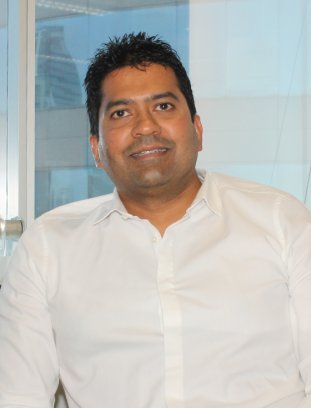
UND and adidas partner on major apparel deal
Wilhelm Elias, Chairman of the Sri Lanka Apparel Sourcing Association, outlines how the foundations of Sri Lanka’s economic revival have to be built on export industries.

30th June 2022
Knitting Industry
|
Colombo, Sri Lanka
In the last 30 years, Sri Lanka has lived through a debilitating civil war, a tsunami, the Easter Sunday bomb attacks and a two-year long pandemic. As a nation, we have battled through them all, emerging bruised but not broken. We are resilient, and yet again, we will overcome the current economic crisis as one nation united. But we need support, and we need the rest of the world to continue to believe in the resolve of the Sri Lankan people.
Through myriad crises, companies have built an apparel industry that has become a reliable sourcing destination for some of the largest global brands. They have reaffirmed confidence in Sri Lanka’s delivery of both product and quality and always looked to Sri Lanka as a safe and reliable pair of hands. The country has developed an enviable reputation for ethical and sustainable manufacturing.
Now, the country is in the throes of a self-inflicted macroeconomic crisis. But what complicates matters this time are events occurring beyond Sri Lankan shores and not within our control.
Russia’s invasion of Ukraine exacerbated a trade and tariff war between the USA and China. Supply chain breakdowns across the world and galloping global inflation added to the explosive mix. Emerging unscathed from this latest crisis is going to be hard and perhaps a long drawn-out process.
The return of some political stability offers much needed hope. However, sustaining that stability and political consensus around a common set of goals will involve deft maneuvering on the Government’s part. All political parties seem to be aware of the risks of upsetting that fragile stability for narrow gains.
Despite fuel shortages, unreliable electricity supply and the precarious state of external finances, exporters adapted to change quickly and continued to deliver product to their customers. Apparel, which accounts for 40 per cent of total exports, and at least half of all merchandise exports, has not halted production even for a day. In the first four months of 2022, export records have been set, and the industry has continued to earn much-needed foreign exchange.
Those export earnings have been useful to pay for critical imports, combined with lines of credit from trading partners such as India and China as the Government negotiates a restructuring of its external debt of almost $57 billion (mostly in dollar-denominated bonds, public and private). Sri Lanka is negotiating with the International Monetary Fund (IMF) and other lending agencies for a resolution to the crisis and progress is being made.
Prior to the pandemic, the apparel industry had set a target of $8 billion in exports by 2025; the Joint Apparel Associations Forum (JAAF), the industry’s apex body etched a vision and strategy for 2030 estimating double-digit growth. Companies cemented their buyer relationships and infused further investment. The Government set up the Eravur Fabric Park, to onshore even greater value addition.
Apparel has been and will continue to be the foundational structure of Sri Lanka’s manufacturing capacity. The commitment is such that two companies just announced the infusion of new investment, adding manufacturing capacity to the current milieu, despite the unstable macro environment.
So, what can be done now? Different stakeholders have different responsibilities.
Firstly, the Government needs to get its fiscal house in order. The Prime Minister has announced tax reforms, but he, his Cabinet and Parliament will have to stay the course. Some taxes have been raised, and more will be. But the need is for structural reform, aligned in response to significant global economic changes. White elephant infrastructure projects, for example, should be removed from the country’s future plans.
Secondly, export and manufacturing industries must be prioritised; it is the foreign exchange earned from these industries that pay for the country’s essential imports, primarily fuel and pharmaceuticals. The operating environment for export-oriented industries must be strengthened, with the supply of energy and import of essential raw material continuing uninterrupted.
Thirdly, citizens should be made aware of the actual cost of living. Subsidies have been very generous in the past, but these are unsustainable and are the reason for Sri Lanka’s public finances being in a mess. In the short run, the prices of all essential commodities increasing, including energy and food, will be unavoidable. Belts will have to be tightened.
Fourthly, the Government should establish a clear five or six-step economic revival plan, developed with the assistance of the IMF and other agencies. That plan should be committed to by, and implemented with, Parliamentary oversight, holding the entire political system accountable for meeting the goals set out.
The Government – not just the Executive, but Parliament as well - should communicate this plan to both Sri Lankans and the global community, explaining the reasons and cost implications of the steps taken and the benefits that accrue by taking a disciplined and responsible approach to economic management.
Experience over three tumultuous decades has demonstrated that buyers, customers and lenders are as invested in Sri Lanka’s apparel industry and economic revival as Sri Lankans are. This is where faith in the apparel industry’s resilience is well seen.
It’s not going to be easy; things will get worse before they get better. Being resilient is about staying committed to proposed reforms and actions, and not losing sight of set goals.
Sri Lanka has fought many a battle and emerged triumphant. We can do it once more – and win.
Wilhelm Elias
Wilhelm Elias is the Chairman of the Sri Lanka Apparel Sourcing Association and has over 25 years of experience in sourcing and operations.

Business intelligence for the fibre, textiles and apparel industries: technologies, innovations, markets, investments, trade policy, sourcing, strategy...
Find out more